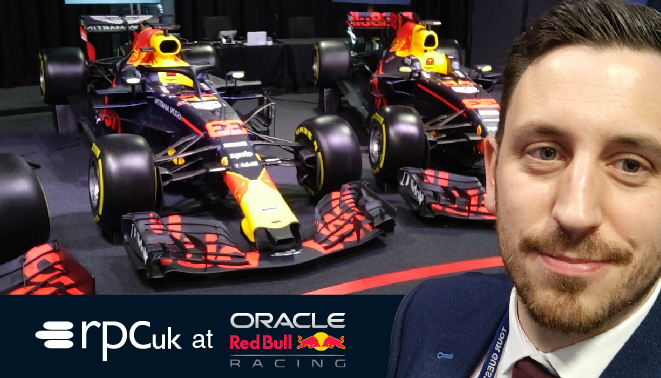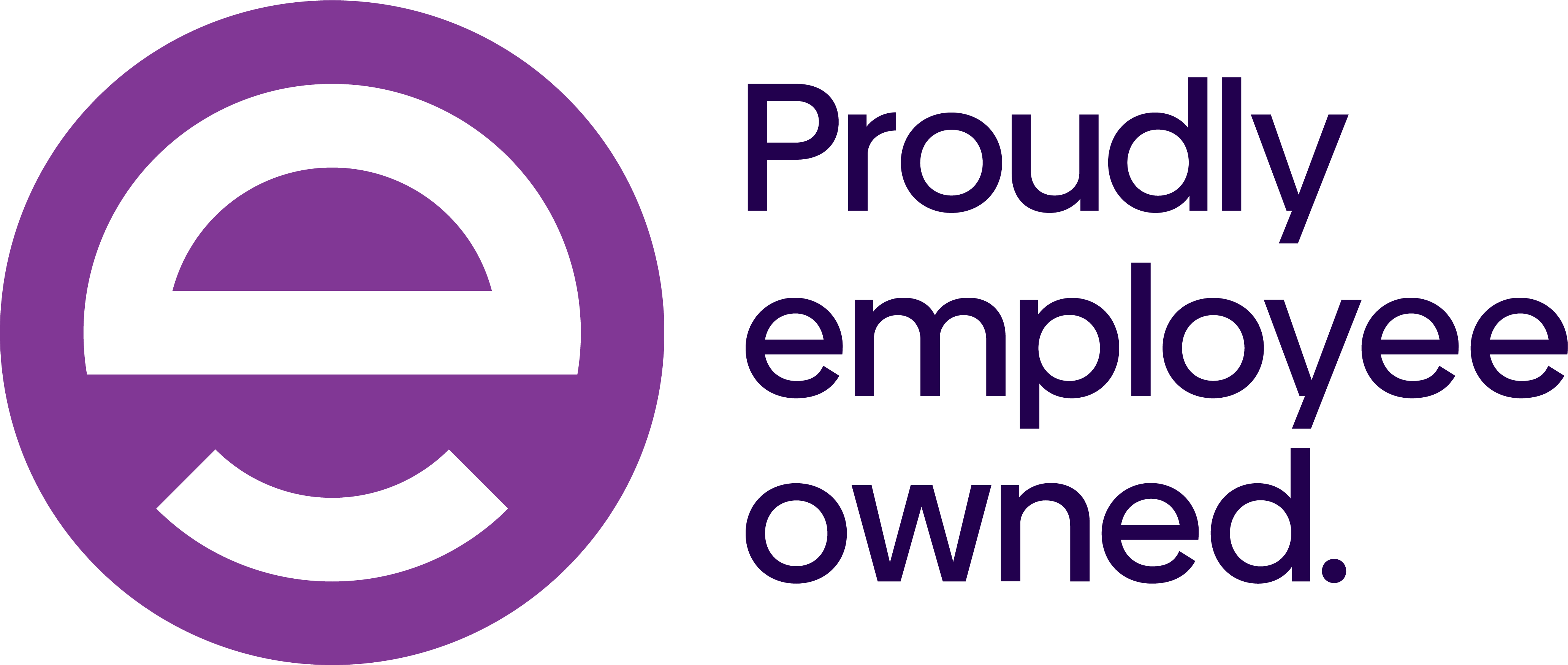High-Speed Solutions on the Oracle Cloud

Technical Consultant and Formula One fan, Chris Callaghan, was excited to represent RPC in March at an Oracle Cloud Solutions workshop hosted by DSP–Explorer at the home of Oracle Red Bull Racing, discussing and sharing stories about the capabilities of Oracle technologies.
The event brought together a wide range of Oracle users, all interested in finding out more from Oracle Cloud Infrastructure specialists, DSP, about the range of Oracle Cloud services they offer. RPC recently transitioned our hosting solution to the OCI platform with the support of DSP, and Chris was able to share insights from the coal face into the migration process and the benefits RPC and our hosting service customers are experiencing from the new OCI platform.
The day’s presentations included an introduction to DSP–Explorer’s business and the Oracle-based solutions they support in cloud enablement and management, database management and support, data visualisation and insights, and much more. DSP has completed more than 150 successful migrations and offers a full, managed service and after-care support, whatever the database and whatever the cloud. Next came a dive into the Oracle and Azure Interconnect solutions used by DSP that are raising the bar on product development for their clients by freeing time, money and resources to be dedicated to the blue-sky process of innovation, rather than the daily grind of data management. Last was a case study exploring in detail RPC’s own cloud transformation.
Discover, Design, Deploy and Evolve
RPC Technical Director, Dave Hurren, was the driving force behind our decision to transition from our established IBM SmartCloud hosting solution to OCI. “The main objective of our Primavera P6 Project Management Service,” he reflects,“was to provide a true multi-tenancy solution for customers who did not wish to make a full SaaS migration, but still wanted to be able to utilise their software within a cost-effective cloud environment. The original version of the service utilised the IBM Smart Cloud system, but this had limitations that prevented us from offering the service we wanted to.”
The first stage of any project is to assess what it’s going to cost and whether the desired outcome is possible – and practical. Coming from IBM to OCI required us to work closely with the DSP team to jointly design a solution architecture that would enable the best possible outcome within OCI. A discovery phase, exploring our existing solution and our goals for the new solution, was followed by a cycle of collaborative design–build–test phases ahead of the production migration. Through a complete re-design in OCI, our original vision became a reality and all the inefficiencies within the IBM cloud were able to be mitigated and removed.
One of the challenges we faced was around the point of migration from IBM to OCI, and the need to minimise the impact to our existing customer base during this transition. This was achieved with collaboration between the two teams, as each team was required to complete specific migration activities.
Delivering results, benefits and new developments
The flexibility of OCI has enabled us to go beyond the original specification and provide our customers with additional services, like an optional remote desktop service, delivered in Azure but securely connected to OCI, enablement and access to integration API’s and new packaged subscriptions to OACS and OICS, including integrations from Oracle Primavera P6 to Oracle NetSuite as a pre-packaged Integration as a Service. None of these additional enhancements would have been achievable in the IBM platform as it was.
The impact of moving to OCI has only been positive for RPC and this is true on multiple levels. For example, the service in OCI with its enhanced security, automated backup and recovery has meant a smaller footprint of technology is required and all of that technology is 100% Oracle, end-to-end. As a result, this has reduced the system support time required, enabling our team to focus on our customers – ensuring we provide the best service we possibly can.
From a business perspective, since the migration to OCI we have doubled the number of customers we have, with over 50 individual customer environments all sharing the same multi-tenancy platform without any risk of contamination between customers: something we would not have been able to achieve within IBM.
The collaboration that brought us to this point is still as active today as it was during the build and migration. As the service and customer base grows, security is enhanced, and upgrades are implemented, DSP remains with us every step of the way. Since undertaking the migration, we have moved from single tenant to multi-tenant and also looked at Analytics, Integration and Azure Virtual Desktop, and we have been able to try and test new services and solutions as new developments emerge, evolving and enhancing the service we are able to offer to our own customers.
Industry leaders and race leaders come together
The day’s workshop was held in the inspiring surroundings of the Oracle Red Bull Racing headquarters, in Milton Keynes, and brought with it a rare opportunity to peek under the bonnet of the world-beating Formula One team – and to meet with team principle, Christian Horner.
Red Bull Racing has been sponsored by Oracle since 2022 and won both the Drivers’ and Constructors’ Championships in that first year together. They are a team built on ingenuity and innovation, just like Oracle, and this year they’re running on their in-house Red Bull Powertrains engine for the first time, having ended their long relationship with Honda.
The Oracle Red Bull relationship is more than just a sponsorship, but a true partnership, as the Red Bull team uses Oracle Cloud technology for real-time race simulations, fan engagement, engine development, and more. Red Bull Racing CEO Christian Horner is quoted as saying, “Oracle Cloud is playing a key role in the outcome of every single Grand Prix that we've won this year, and every Grand Prix where we've achieved significant results.”
The team calculates aggressive racing strategies with the help of modelling and Monte Carlo simulations to explore different scenarios and outcome possibilities both before and during every race.
Lead driver, Max Verstappen, praises this level of detail and preparation: “Due to all the simulations before the race even starts, it's very easy to adapt a different strategy during the race because everything is there, everything is prepared. I think we definitely had a strategy edge over other teams.”
The race results speak for themselves. What better endorsement for Oracle’s Cloud solutions?









